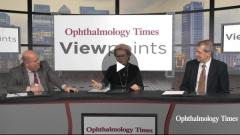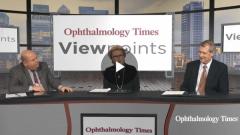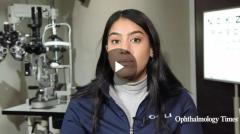
Patient Counseling on Generic vs. Branded
Episodes in this series

Eye care experts share their approaches for counseling patients about generic versus branded medications.
[Transcript]
Marguerite McDonald, MD, FACS: As far as patient education, do you provide any information to the patients about brand versus generic?
Richard Mangan, OD, FAAO: I know some practices actually hand out literature, and I think that’s a great idea. That is something I’d like to incorporate. But I do definitely take the time to explain the pros and cons about this issue, and why I feel this product is really best for them. And what’s interesting is just by taking a few minutes to give that explanation, it’s amazing how many all of a sudden really feel that the branded is best for them too. It’s not like I’m having to twist too many arms on this. It’s just educating them about what the real differences are. Many feel that a generic is exactly the same as the branded, that it’s just been reduced in cost. So when they hear about these variances, it’s important to them.
Marguerite McDonald, MD, FACS: Especially surrounding surgery you can say, “I really feel drug X is much better for you than drug Y. You only have 2 eyes. This is not a long-term situation.” It is possible I think in just a few sentences to impart that information.
Eric Donnenfeld, MD, FACS: I can believe it, Marguerite. In all of medicine, generics are used very commonly. But in eye care, optometry and ophthalmology, we use the highest percentage of branded medications of any specialty. And there’s a very good reason for that. When you give a medication orally, it’s digested. It goes through the GI [gastrointestinal] tract. It hits the acid in the stomach. It’s purified. The waste is excreted. There’s no mucous membrane that’s involved here. When you give a topical drop, it’s applied to the ocular surface, it’s the most vital substance of the body. It’s incredibly sensitive to changes in pH, in chemistry. And a small problem in drug delivery applied to the ocular surface can have an enormous impact upon medication effectiveness. That’s why I think that branded [medications] are more important for what we do than for really any other specialty.
Marguerite McDonald, MD, FACS: Yes, the pharmacokinetics are completely different. And the drug companies will have teams that do systemic medications, and then ophthalmic teams only, for that reason.
How do you respond when a patient says, “Doctor, I just can’t afford that,” and they ask for a generic, if you are really convinced that the branded medication is the best?
Richard Mangan, OD, FAAO: Right. In all of our practices we deal with comorbidity of dry eye and glaucoma all the time. One thing we know is that too much BAK [benzalkonium chloride] load to the ocular surface not only has some immediate effects, but long term, it can have effects on surgical outcomes, etcetera.
I just had a patient recently who, she told my technician before I even walked into the room, “If the doctor is going to prescribe a drop, can you prescribe me a generic?” Well, this is a patient who already has ocular surface disease. She’s maybe a year or two away from cataract surgery. And one of the things that she loves to do is read. And she talked about how her reading has been affected by her dry eye. So I took the time to explain, “Look, if we go with a branded product, a glaucoma product that has a preservative that’s friendly to the ocular surface, or preservative-free, we may find that this helps extend your ability to read more comfortably over time.”
And as soon as she realized that reading is her passion, she didn’t want to do anything to rock that world, so to speak. In her mind it made more sense to then consider the branded product over something that may not be as good to the ocular surface.
Eric Donnenfeld, MD, FACS: It’s a very sensitive and important topic to talk to patients about the cost of medication. I think as doctors we have an obligation to do what’s best for our patients, but also to understand their financial limitations. I will very commonly prescribe a generic medication to a patient if I think it’s a reasonable alternative. They don’t have to get branded, unless I think it’s in their best interest to get the branded. And if it’s a significant financial concern, one of the nice things about branded medications is you’re dealing with big companies, and they almost always provide samples to you. Generics don’t provide samples. When you prescribe a branded you can always have that backup plan that you’ll have some generics. Or, they have a pathway through the company to provide medications at no cost to truly indigent patients who need the medications.
Corporate eye care is actually very sensitive to the fact that they need to provide medications to these patients. You brought up before about dry eye, and I want to reiterate that. There’s nothing more frustrating to me as a clinician than when I do a surgery or I manage a complex case, and the patient has a bad outcome because they have the wrong medications. At the end of the day, you’re the captain of the ship and you have to make certain that your patient gets the medication that’s going to give them the best chance of a good clinical outcome. And if that’s going to be a branded medication, then my patient is going to get a branded medication if we have to find a way of getting it for that patient.
Dry eye patients are the most difficult to manage and the ones who have the most complications with generic medications because their ocular surface is more compromised. And you brought up a very good fact, these patients have more sensitivity to BAK, to pH, to excipients, to drug absorption, so the patients for whom it’s most critical to get branded medications are the dry eye patients. Those are the ones I particularly look out for.
Newsletter
Don’t miss out—get Ophthalmology Times updates on the latest clinical advancements and expert interviews, straight to your inbox.








































